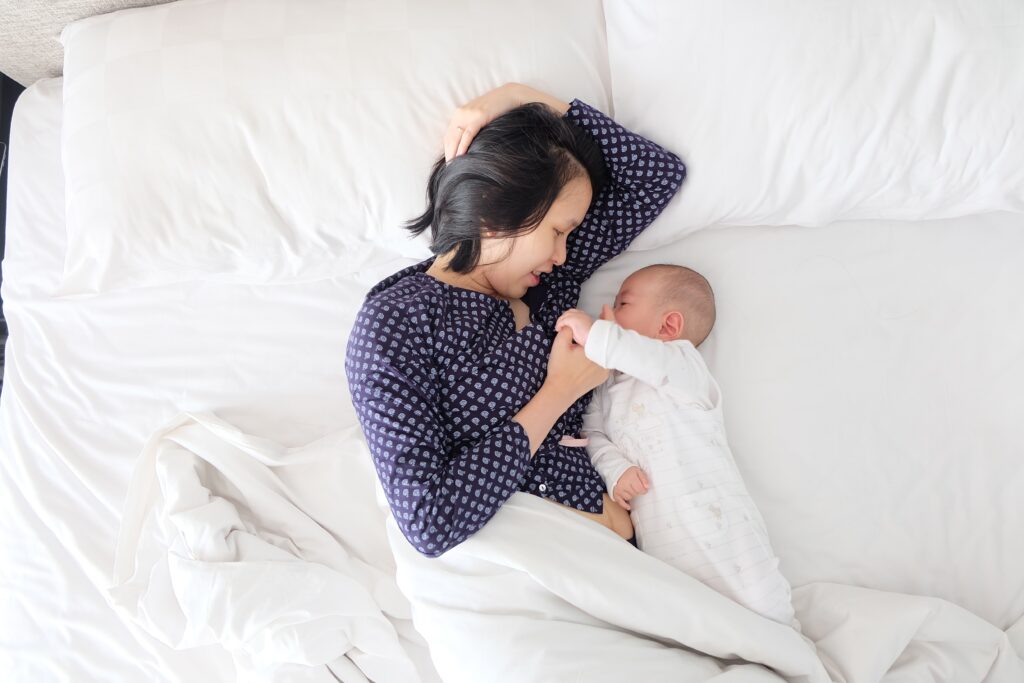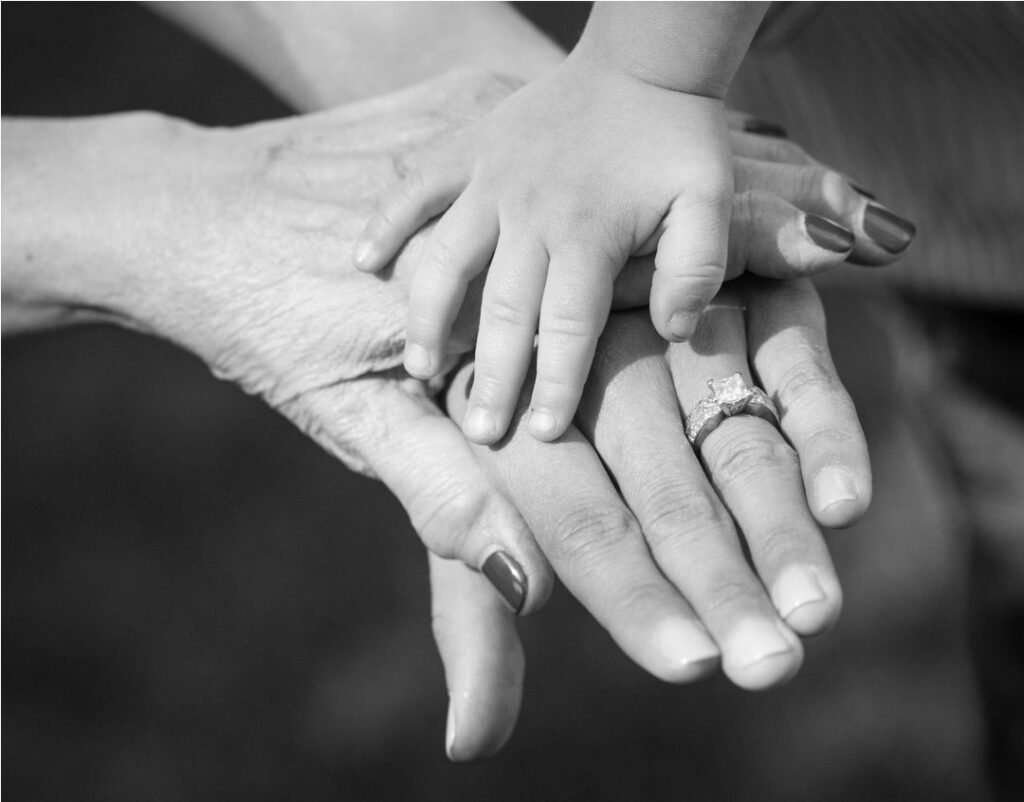Photo by kevin liang on Unsplash
Being a mother can be both a wonderful and daunting experience; wonderful as motherhood ushers in new life into the world, and daunting because no one is ever prepared to raise a child and go through sleepless nights. Transition to motherhood requires a significant change in one’s lifestyle and overall well-being, including and especially mental health.
After having a baby, new moms may experience baby blues that could last for a few days and up to two weeks. Symptoms may include sadness, mood swings, feeling overwhelmed, crying, trouble sleeping, anxiety, irritability, loss of concentration, and appetite. However, if these symptoms persist longer than two weeks, there is a high chance of getting postpartum depression.
Postpartum depression is a mood disorder that shares some similar symptoms of depression but manifests after childbirth. While this mood disorder may happen to both parents, it is more common among women.
On average, 1 out of 7 mothers experiences postpartum depression.¹
How do you know if you have postpartum depression?
Some of the significant signs of postpartum depression include, but are not limited to having:
- Excessive crying
- Easily irritated
- negative automatic thoughts
- Self-reproach
- fear that you are not a good mother
- Feels guilty, hopeless, worthless, helpless, shameful, and inadequacy
- difficulty to bond with the baby
- obsessive thoughts or attention toward the baby
- thoughts of harming oneself or the baby
- thoughts of death or suicide
- Feeling lonely or isolated
- Severe anxiety or panic attacks
Postpartum Depression during Covid-19 Pandemic
Many risk factors contribute to postpartum depression and the impact of the Covid-19 pandemic should be taken seriously. According to an international survey, pregnant and postpartum women (within 6 months after giving birth) reported experiencing heightened post-traumatic stress, anxiety, depression, and loneliness.² These reported mental health challenges were associated with excessive information-seeking behavior and constant worries related to the child’s health, inadequate childcare support, and missing medical appointments.
In another study³, pandemic lockdown is associated with decreased physical activities among pregnant and postpartum mothers and this has also contributed to the doubling of depression and anxiety. On the other hand, women who engage in moderate level of physical exercise for 150 minutes per week are less depressed and anxious during the lockdown period.
There was no publicly-cited nationwide study of postpartum depression during the pandemic period in Malaysia. However, a preliminary nationwide online survey of 1050 mothers was conducted by researchers from University Putra Malaysia (UPM) in 2020.⁴ In their study, they found that Malaysian mothers are moderately overwhelmed with emotions during the partial pandemic lockdown.
Mothers who have financial difficulty and lack social support may find themselves highly concerned about their infant’s health, adapting to new norms, and meeting their family’s needs. New mothers are also affected as they receive less social support during the pandemic in comparison to the pre-pandemic period. Thus, they are at higher risk of postpartum depression.
Several local news have also reported that new mothers face difficulties in managing their time working from home while having to do house chores and caring for the baby.⁵,⁶ The extended lockdown and high cases of Covid-19 further hinder them from seeking support from others due to the fear of contracting the virus. When mothers feel overwhelmed, they may find it difficult to bond with their baby and this may lead to poor childcare development and other risks such as child morbidity and maternal suicide. A recent case reported in Singapore entailed a 35-year old Singaporean mother, who committed suicide with her 5-week old daughter due to postpartum depression.⁷
“In the recording, the woman said she should not have had the baby as she did not know how to take care of babies or her family. She said she was not a good mother and wife and had let the family down.”
– Lydia Lam, 2021 from CNA
Malaysian Mothers’ Perception toward Postpartum Depression
In Malaysia, recent qualitative research found that postpartum depression is often overlooked as a “ temporary and less serious emotional condition”.⁸ All 33 participants (6 to 52 weeks after giving birth) reported relying on self-care, reframing, mental preparedness, online resources, religion, family and trusted individuals who have motherhood experience for support. In the interview, it is revealed that many mothers do not see healthcare practitioners (HCP) like doctors and nurses as the go-to person for emotional support.
It has been reported that other than providing attention toward a baby’s growth and health, family planning, and breastfeeding, HCP rarely asks mothers questions that concern the maternal emotional and mental health. Some mothers acknowledge that HCP in Malaysia usually have a busy schedule and they are usually not equipped with adequate therapy skills to provide emotional support. However, many mothers in the interview also expressed their desire to have access to counseling and psychoeducation during their pre- and postpartum journey by their HCP or healthcare facilities. They would also like to know how to be a first-time mom.
How can professionals help to manage Postpartum Depression?
Postpartum depression is treatable but it should not be taken lightly. A new mother should have a routine mental health check and recognize symptoms of postpartum depression especially when:
- She has symptoms that persist more than two weeks
- Her usual self-care routine and support system no longer works for her
- She finds it difficult to manage her daily activities
- She has recurrent thoughts on self-harm, harm others, and suicidal ideation
- She has constant feelings of shame, guilt, and worthlessness – irrational negative automatic thoughts
Psychotherapy like psychoeducation and online cognitive behavioral therapy (CBT) has been shown to help alleviate postpartum depression.⁹,¹⁰ In fact, mothers who seek treatment are better at coping with postpartum depression, anxiety, and stressors in life. They are also better at bonding with their infants. Other than seeking professional help, support groups for postpartum mothers are also beneficial.
Need to vent your problems to someone who would not impose their unsolicited advice on you when all you need is for someone to listen to you? Or, are you curious to learn more about yourself? Make an appointment today to see one of our Board-Certified Counsellors or Clinical Psychologists. If you are not sure what to expect from our psychotherapy session, check out our article on How to Prepare for a Therapy Session
References
[1] What is postpartum depression & anxiety?. American Psychological Association. (2008). Retrieved 20 September 2021, from https://www.apa.org/pi/women/resources/reports/postpartum-depression.
[2] Basu, A., Kim, H., Basaldua, R., Choi, K., Charron, L., & Kelsall, N. et al. (2021). A cross-national study of factors associated with women’s perinatal mental health and wellbeing during the COVID-19 pandemic. PLOS ONE, 16(4), e0249780. https://doi.org/10.1371/journal.pone.0249780
[3] Davenport, M., Meyer, S., Meah, V., Strynadka, M., & Khurana, R. (2020). Moms Are Not OK: COVID-19 and Maternal Mental Health. Frontiers In Global Women’s Health, 1. https://doi.org/10.3389/fgwh.2020.00001
[4] Shukri, N.H. (2021). The covid-19 pandemic: How are mothers doing? [Infographic[. Mom-baby Study. https://twitter.com/ISRHML/status/1430862595704057856/photo/1
[5] Ahmad, A. (2021). Feel like you’re a bad mother after giving birth? It could postnatal depression. The Star. Retrieved 25 September 2021, from https://www.thestar.com.my/lifestyle/health/2021/06/09/just-gave-birth-and-feel-like-you039re-a-bad-mother.
[6] In Covid-19 era, new mums face new challenges caring for newborns – Borneo Post Online. Borneo Post Online. (2021). Retrieved 27 September 2021, from https://www.theborneopost.com/2021/09/12/in-covid-19-era-new-mums-face-new-challenges-caring-for-newborns/.
[7] Lam, L. (2021). Woman who committed suicide with newborn daughter suffered from postpartum depression: Coroner. CNA. Retrieved 27 September 2021, from https://www.channelnewsasia.com/singapore/postpartum-depression-suicide-baby-daughter-coroner-1414381.
[8] Arifin, S., Cheyne, H., Maxwell, M., & Yousuf, A. (2021). The Malaysian Women’s Experience of Care and Management of Postnatal Depression. Clinical Practice & Epidemiology In Mental Health, 17(1), 10-18. https://doi.org/10.2174/1745017902117010010
[9] Layton, H., Owais, S., Savoy, C., & Van Lieshout, R. (2021). Depression, Anxiety, and Mother-Infant Bonding in Women Seeking Treatment for Postpartum Depression Before and During the COVID-19 Pandemic. The Journal Of Clinical Psychiatry, 82(4). https://doi.org/10.4088/jcp.21m13874
[10] Roman, M., Constantin, T., & Bostan, C. (2019). The efficiency of online cognitive-behavioral therapy for postpartum depressive symptomatology: a systematic review and meta-analysis. Women & Health, 60(1), 99-112. https://doi.org/10.1080/03630242.2019.1610824
Jolene Tan is a provisional counsellor who completed her Master’s in Counselling at Monash University and she holds a Bsc. Environmental Science in University of Nottingham. She is a content creator who is passionate about sustainable lifestyle and mental wellbeing.





